
…Without doubt, we should understand that climbing as showing us that we go up by humbling ourselves and down by praising ourselves.
What is humility?
Here we are. After 6 chapters introducing authority, obedience and living with others, St. Benedict dedicates a whole chapter to humility. Reading this chapter feels like it’s a summary of all that has been said before; he even repeats ideas,
The first step of humility is taken when a man obeys all of God’s commandments (c.f. The Prologue)
The third step of humility is attained when a man, from love of God, obediently submits to a superior in imitation of the Lord (c.f. Chapter 1)
The eighth step of humility is reached when a monk only does that which the common rule of the monastery or the example of his elders demands (c.f. Chapter 1 and Chapter 2)
The ninth step of humility is achieved when a monk, practicing silence, only speaks when asked a question… The tenth step of humility is reached when a man restrains himself from laughter and frivolity (c.f. Chapter 5)
I find myself reflecting on humility each week as I read the Rule of St. Benedict. I discover I am caught between a balking at an emotional/spiritual form of self mutilation and a deep desire to explore unchartered territory of anonymity. When I become aware of my mental gymnastics over this issue I am prompted to remind myself of what ‘humility’ is and is not.
Humility is rooted in the Latin humus, meaning “ground”. I find it helpful (rightly or wrongly) to rename it ‘grounded’. To be humble is not to become a doormat with no desire to establish an identity but rather a true and frank acknowledgement to your standing in the world. Once we begin to understand that to know who you truly are we can move away from our natural desire to reject St. Benedict’s twelve steps to humility. This is not to say that humility should not carry some fear and discomfort for us humans, naturally bent towards pride and selfish individualism of many forms. The process to humility is about stripping off false identities and claiming rightful ones, spiritual ones.
There are thoughts which spring to mind as I talk about natural desires and identity. The first is a thought picked up from Gregory Boyd in his book ‘God of the Possible’. He suggests,
Genes, parenting, and spiritual forces do condition who we are. But for believers whose spirits have been regenerated by the Holy Spirit these conditioning factors cannot determine who we are unless we choose to allow them to do so. (Gregory Boyd, God of the Possible: a biblical introduction to the open view of God (Grand Rapids: Baker Books, 2000))
Boyd is saying that we are conditioned by biological and experiential factors to do and be certain things but none of these factors should control or oppress us. By the Holy Spirit (and that is the emphasis) we are set free from conditioning factors to be transformed, strengthened to follow the way of Christ. We should no longer claim, ‘I can’t do that. It’s not how I was made.’ God knows of what you are made and that is why He sent His Holy Spirit to help us.
The second thought comes from reading Leonardo and Clodivus Boff’s book ‘Introducing Liberation Theology’. There’s a quote which resonated with the reflections I’ve been having whilst reading this chapter.
The gospel is not aimed chiefly at “modern” men and women with their critical spirit, but first and foremost at “nonpersons,” those whose basic dignity and rights are denied them. (Leonardo Boff and Clodivus Boff, Introducing Liberation Theology (Tunbridge Wells: Burns & Oates, 1987) p.8)
I do not want to belittle or ignore the main aim of the Boffs’ statement, that of the extreme poor in our world, but I was drawn to the term “nonpersons”. This phrase reminds me of John Zizioulas’ work on Christian anthropology particularly an excellent article entitled ‘Human Capacity and Human Incapacity: A Theological Exploration of Personhood’. Zizioulas articulates a distinction between humans and persons; one is a biological phenomenon the other is a metaphysical reality achieved through communion with God. It is through this divine communion, in baptism, Eucharist and the Body of Christ (the Church) that one transforms from ‘human’ to ‘person’.
I want to suggest that the gospel is for “modern” men and women precisely because they too are “nonpersons”, the difference is that they deny personhood themselves rather than having them denied by others. The path St. Benedict sets out in this chapter on humility is a process for all people to develop from human to person through the task of community.
Ultimately, St. Benedict’s process to spiritual growth and deeper communion with God is set out at the beginning of the Rule as he describes the ideal monks, the Cenobites, ‘who live in a monastery waging their war under a rule and an abbot’. To live a life of discipleship in the Kingdom of God one must be obedient to a community and an abbot. Humility will arrive after one has journeyed the difficult and treacherous road through community.

Humbling Ourselves
I would love to explore each rung of St. Benedict’s ladder to humility but I am both daunted by such a task and ill-equipped. I do want to spend a few moments, however, reflecting on St. Benedict’s analogy.
I was struck by St. Benedict’s use of direction in his depiction of the ladder to humility. He suggests we climb to the ‘highest peak of humility’ which is a journey away from the ground and up to heaven. The model I would tend to consider is the depiction of Christ’s humility in Philippians 2:3-11
Do nothing out of selfish ambition or vain conceit. Rather, in humility value others above yourselves, not looking to your own interests but each of you to the interests of the others. In your relationships with one another, have the same mindset as Christ Jesus, who, being in very nature God, did not consider equality with God something to be used to his own advantage; rather, he made himself nothing by taking the very nature of a servant, being made in human likeness. And being found in appearance as a man, he humbled himself by becoming obedient to death – even death on a cross! Therefore God exalted him to the highest place and gave him the name that is above every name, that at the name of Jesus every knee should bow, in heaven and on earth and under the earth, and every tongue acknowledge that Jesus Christ is Lord, to the glory of God the Father.
Christ humbled himself and came down. In the gospels Christ describes humility as putting yourself lower and, in so doing, paradoxically being raised through exaltation by God. Humility, in my mind has always been a descent into that ‘humus’/grounding.
This leads me to another reflection I’ve had about humility; The analogy depicts hard work and intentionality about achieving humility. There are set, pragmatic steps to take to arrive at this state of humility. This unsettles me. I am not suggesting that St. Benedict is wrong or misguided in his teaching but I am rather challenged in my pre-conceived attitude to humility.
My question is, ‘can I humble myself?’ What I mean by this is, is the process of humbling an act we do or an act that is done to us by others and God? The passage from Philippians clearly says Jesus ‘humbled himself’ but is that possible because He is the Son of God or is it an invitation that we should od the same. The difference between humbling yourself and being humbled may seem pedantic and semantic but I think, in relation to St. Benedict’s call to climb the ladder to humility, it is important to ensure where our focus is. Are we to look at humbling ourselves or rather look at living in community and, in doing this discovering we are humbled?
I would want to suggest that humility is achieved by living out the life of obedience in a community, committing to the actions of considering others before yourself, seeking the common good for those to whom you have committed higher than selfish ambition and vain conceit; in short, to love, truly and in imitation of Christ. If you do this then you will find yourself humbled. These steps to humility by St. Benedict are like the Beatitudes in Matthew’s gospel,
Blessed are the poor in spirit, for theirs is the kingdom of heaven. Blessed are those who mourn, for they will be comforted. Blessed are the meek, for they will inherit the earth. Blessed are those who hunger and thirst for righteousness, for they will be filled. Blessed are the merciful, for they will be shown mercy. Blessed are the pure in heart, for they will see God. Blessed are the peacemakers, for they will be called children of God. Blessed are those who are persecuted because of righteousness, for theirs is the kingdom of heaven. Blessed are you when people insult you, persecute you and falsely say all kinds of evil against you because of me. Rejoice and be glad, because great is your reward in heaven, for in the same way they persecuted the prophets who were before you.
We read these wrong if we feel we need to mourn, to be meek, to be peacemakers, etc. in order to be blessed. Our focus is wrong if we think that the point of these statements is to show us how to be blessed, as if they are some self-help programme. These are statements of truth not guidance as to how to live your life. These are more about virtues than about practical steps to self improvement. It’s the paradox and challenge of the life of faith in Jesus Christ; you achieve the goal (salvation, arrival into heaven, enlightenment) by not focussing on achieving that goal.
Community is the same,
Christian brotherhood is not an ideal which we must realize; it is a reality created by God in Christ in which we may participate. (Dietrich Bonhoeffer, Life Together (London: SCM Press, 1954) p15-16)
Organic community is not a product, not an end result. Organic community – belonging – is a process, a conversation… It is not the product of community that we are looking for. It is the process of belonging that we long for. (Joseph R. Myers, Organic Community: Creating a Place Where People Naturally Connect (Grand Rapids: Baker Books, 2007) p125)
Reflection
Looking at community within the parish context becomes complicated when you’re aim and focus is building community, as if it were a product or goal to achieve. Community is the process of loving others; the focus is on doing the process rather than achieving the product. It’s like art: an artist may have an idea of what the piece may look like or express but whilst working on it they must cast that dream to one side and engage fully in the task of creating. Then the art is more beautiful and surprising, even to the artist themselves.
What St. Benedict is placing before us is a series of activities to do, not to achieve humility in ourselves but to encourage the growth of community around us and in that rich soil the seed of humility is grown, hidden even from our own eyes until, at the end, when the Reaper comes for the harvest we will find, with Him, that we have born good fruit.
Transformer of humans, Come by Your Holy Spirit and guide me in the way of love and obedience. That, in doing this I will be rightfully humbled even to death and thus be exalted by my Heavenly Father, for His glory and His Kingdom.
Come, Lord Jesus.
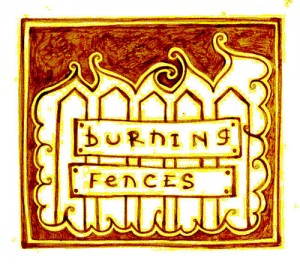 I have had the privilege of being welcomed into a community over the last year which has had an ongoing and deeply transformative impact on me and my vocation as an ordained priest. The community are mainly in their twenties and would, at a cursory glance, be classified as ‘arty’ intellectual types, although this is not entirely true; not that they are not either of those things but that which unites this group isn’t those two general categories. It is only in the last month or so that I have begun to grasp the ‘charism’, the ‘je ne sais qua’, of Burning Fences.
I have had the privilege of being welcomed into a community over the last year which has had an ongoing and deeply transformative impact on me and my vocation as an ordained priest. The community are mainly in their twenties and would, at a cursory glance, be classified as ‘arty’ intellectual types, although this is not entirely true; not that they are not either of those things but that which unites this group isn’t those two general categories. It is only in the last month or so that I have begun to grasp the ‘charism’, the ‘je ne sais qua’, of Burning Fences.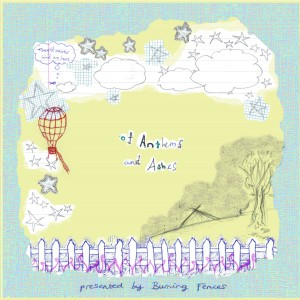 Before I stumbled through the doors one cold December night, this community had been meeting, singing and telling stories for a year or more. They had produced a CD of songs which they had developed entitled ‘Of Anthem and Ashes’. The images that were resonating with them then and remain reverberating through our times together are phoenix like resurrections; songs sung in the rubble, new plants breaking through concrete. These images have always resonated with me and it’s why I know I am a ‘fence burner’.
Before I stumbled through the doors one cold December night, this community had been meeting, singing and telling stories for a year or more. They had produced a CD of songs which they had developed entitled ‘Of Anthem and Ashes’. The images that were resonating with them then and remain reverberating through our times together are phoenix like resurrections; songs sung in the rubble, new plants breaking through concrete. These images have always resonated with me and it’s why I know I am a ‘fence burner’. The times when Church is most frustrating, for me, is in the ‘necessary organization’. What irks me is the lack of convincing Biblical precedent. The Temple system failed and yet here we are in the 21st century rebuilding it. I get it, organic is messy and uncontrollable, unpredictable but it’s how the world functions. We human beings are devastating when we control and tinker with the organic creation. We’ve tried to organize the world and what we discover is we’re trapped in boxes which do not fit nor encourage us to flourish in the ways in which we should.
The times when Church is most frustrating, for me, is in the ‘necessary organization’. What irks me is the lack of convincing Biblical precedent. The Temple system failed and yet here we are in the 21st century rebuilding it. I get it, organic is messy and uncontrollable, unpredictable but it’s how the world functions. We human beings are devastating when we control and tinker with the organic creation. We’ve tried to organize the world and what we discover is we’re trapped in boxes which do not fit nor encourage us to flourish in the ways in which we should.
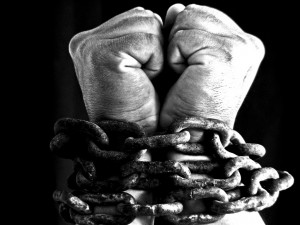
 Where he came from, neither of them knew. How he got past their captors; who could say? He was either a fraud, one of the warders provoking them for his own amusement; or their captors had fled leaving the cell unguarded; or it was a miracle. None of this mattered much as he walked over to them and spoke.
Where he came from, neither of them knew. How he got past their captors; who could say? He was either a fraud, one of the warders provoking them for his own amusement; or their captors had fled leaving the cell unguarded; or it was a miracle. None of this mattered much as he walked over to them and spoke.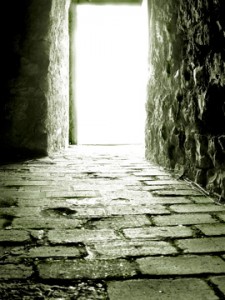 Through the doors they saw their guards sleeping soundly. It seemed so strange – no – illogical that they could slumber during a rescue mission in the jail they were meant to watch. The whole incident was feeling so mysterious and implausible; a dream with no reason. Yet this man kept leading them down the corridor towards a bright light; the final exit to freedom.
Through the doors they saw their guards sleeping soundly. It seemed so strange – no – illogical that they could slumber during a rescue mission in the jail they were meant to watch. The whole incident was feeling so mysterious and implausible; a dream with no reason. Yet this man kept leading them down the corridor towards a bright light; the final exit to freedom.
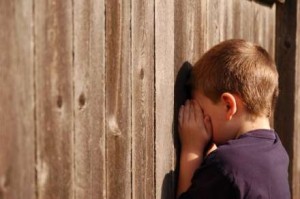 24. What is an encounter with the ‘hidden’ God like?
24. What is an encounter with the ‘hidden’ God like?
